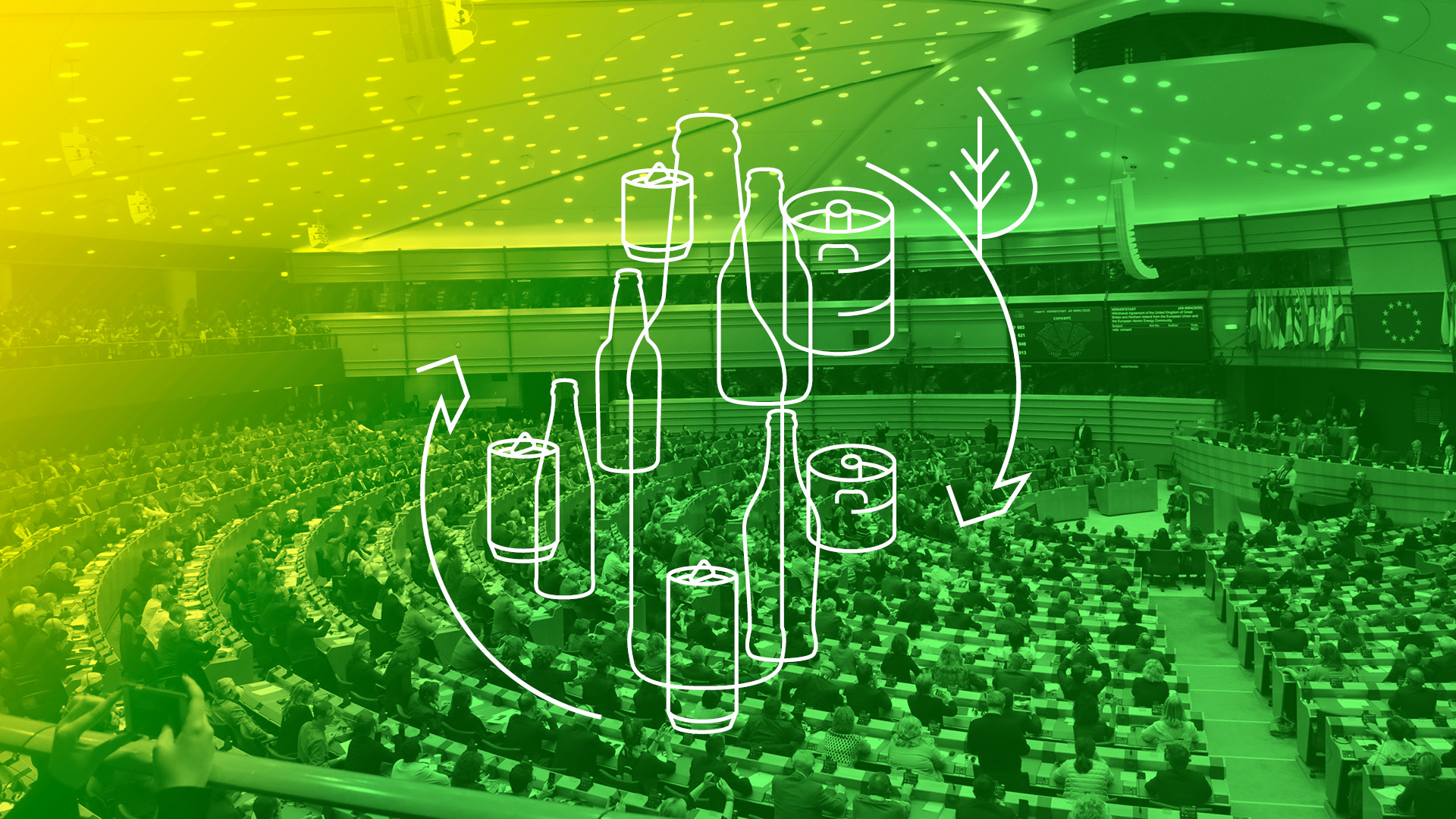The European Parliament has always led the way when it comes to sustainability, pushing the European Union to be more ambitious. Meeting in Strasbourg on Wednesday, November 22, MEPs can use their power to shape one of the EU’s most important environmental laws of recent years, when they vote on the draft EU Packaging and Packaging Waste Regulation (PPWR). Their votes can ensure the new packaging rules are not just fair but effective in setting clear environmental standards.
A lot is at stake here. The PPWR aims to cut needless packaging and packaging waste in all areas of the economy, but the legislation needs to be strong and tight so that everyone plays their part.
Unfortunately, that is not the case in the current version. The draft PPWR favours some economic sectors and discriminates against others – and that is particularly the case in the drinks industry. If left unchanged, the legislation would unnecessarily lead to more packaging on the market. With the eyes of the world on the EU, we cannot allow loopholes that let some sectors wriggle out of their environmental responsibilities.
But there is a chance to redress this oversight and save the packaging rulebook.
When MEPs vote, they can amend the legislation and ensure a level playing field in the drinks packaging market. MEP Ivan Stefanec, with support from a coalition of MEPs across the political spectrum, has proposed Amendments 447 – 449 to address the most egregious instances of favouritism that have been left there.
What do these amendments do?
They address two major issues that apply to the beer sector but not others: packaging reuse targets and mandatory participation in national deposit return systems (DRS).
Unlike other beverage sectors, brewers already sell half their produce in reusable packaging, returned through well-established, well-functioning systems in many countries. DRS, in place across the world, encourage more people to recycle drinks containers, such as bottles and cans. Two-thirds of glass beer bottles are reused, whilst the other third can be recycled.
But in its current form as voted by the Environment Committee (ENVI), the PPWR report provides a full exemption from mandatory DRS for wine, aromatised wine products and spirit drinks. And it does so without any legal or environmental justification.
This undermines the EU’s Single Market principle of non-discrimination, which recognises that alcoholic beverages – notably wine and beer – are competing products and should not be treated differently. It also undermines the entire environmental principle of the legislation.
The PPWR should instead ensure Europe has a level playing field where all alcoholic beverages play by the same rules, with everyone contributing fairly. Amendments 447 and 449 simply remove the unjustified exemptions.
Stefanec’s Amendment 448 deals with reuse to ensure it applies across all alcoholic drinks categories: it sets targets of 10% for 2030 and 25% for 2040 for the percentage of beverages that should be made available in reusable packaging – all while allowing manufacturers flexibility to achieve reuse targets across their portfolio.
These amendments may seem small but they would have a huge impact not just on the beer sector but on the environment as a whole.
Brewers are proud of their record of sustainability: we lead the way on recycling, reuse and reduction. Our kegs are the ultimate sustainable vessel, lasting decades before being recycled again. But we should not be the ones doing it on our own. Other sectors should not be given a free pass when it comes to cutting packaging and packaging waste.
That is why we are asking MEPs to back the Stefanec amendments. They can make the PPWR fair and effective. That would be better for Europe and the environment.
